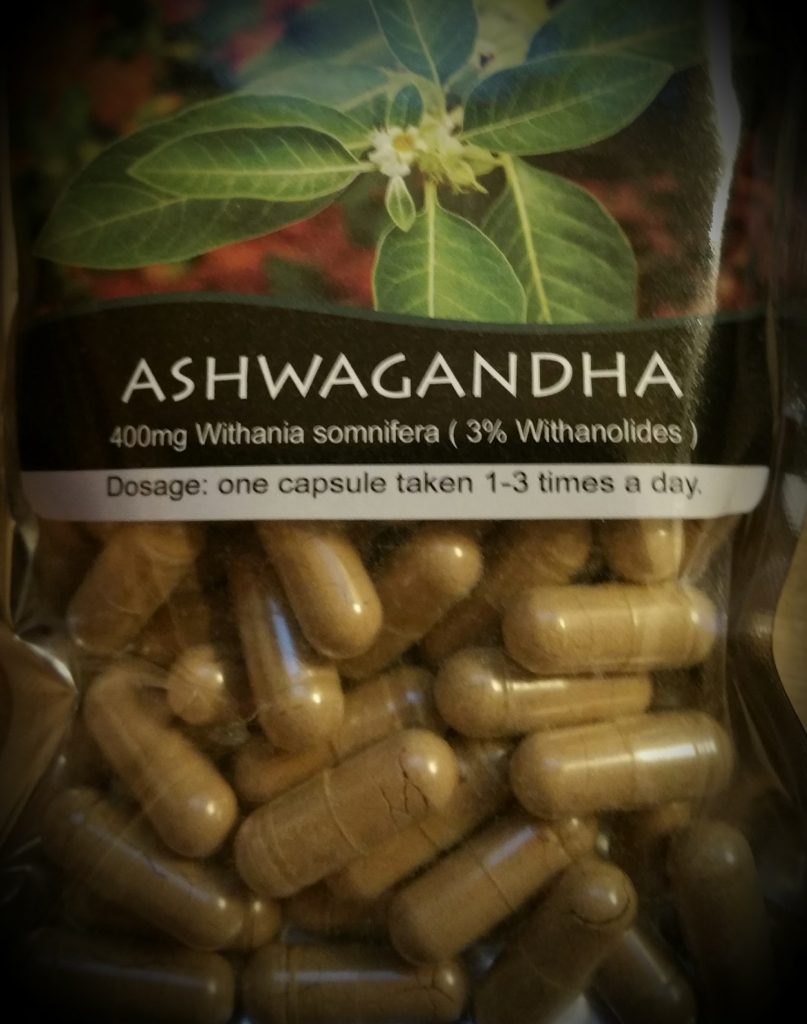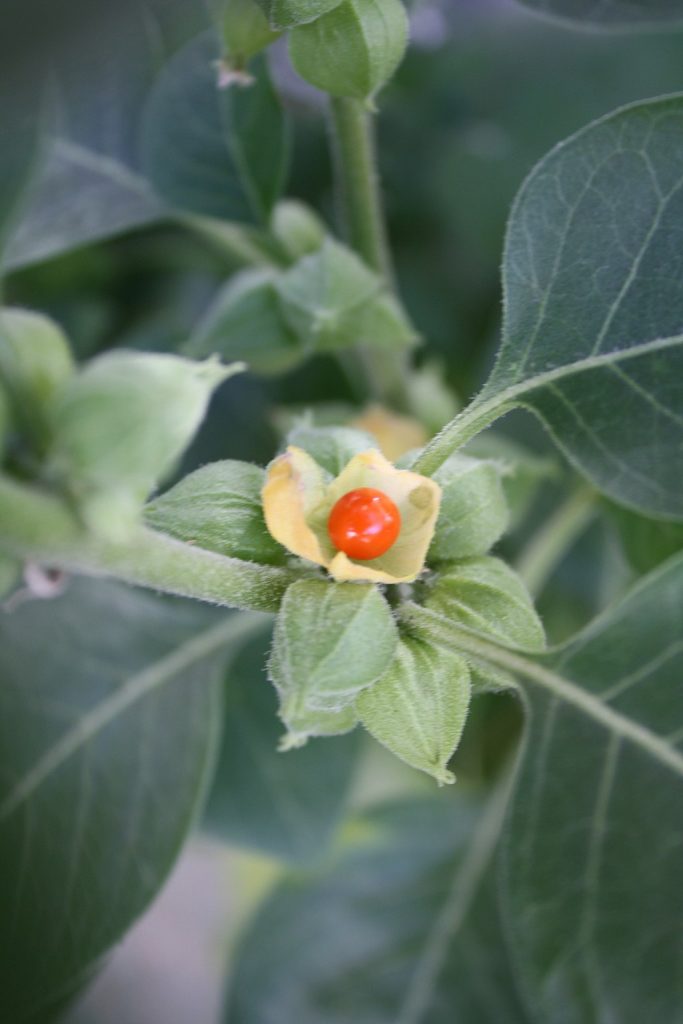 The prevalence of anxiety or anxiety related disorders has been reported to be as high as 30 % in the United States. Estimates suggest the prevalence is at similar levels in other Western countries. The high prevalence of anxiety has increased the desire for effective and safe anxiety treatments, particularly those from the traditional forms of medicine. Ashwagandha, also called withania or Withania somnifera, is a herb used in traditional Ayurvedic medicine as a general tonic. Ashwagandha is thought to possess adaptogenic properties on account of the presence of phytochemicals called saponin lactones in the plants tissues. By an unknown mechanism these phytochemicals are able to reduce the detrimental effects of external stressors and thus help the consumer to maintain normal homeostatic function. Ashwagandha can therefore be thought of as an anti-stress agent, and this anti-stress effect likely has downstream beneficial effects on the parameters normally negatively affected by stress, including mental health and mood.
The prevalence of anxiety or anxiety related disorders has been reported to be as high as 30 % in the United States. Estimates suggest the prevalence is at similar levels in other Western countries. The high prevalence of anxiety has increased the desire for effective and safe anxiety treatments, particularly those from the traditional forms of medicine. Ashwagandha, also called withania or Withania somnifera, is a herb used in traditional Ayurvedic medicine as a general tonic. Ashwagandha is thought to possess adaptogenic properties on account of the presence of phytochemicals called saponin lactones in the plants tissues. By an unknown mechanism these phytochemicals are able to reduce the detrimental effects of external stressors and thus help the consumer to maintain normal homeostatic function. Ashwagandha can therefore be thought of as an anti-stress agent, and this anti-stress effect likely has downstream beneficial effects on the parameters normally negatively affected by stress, including mental health and mood.

Ashwagandha is a herb that possesses anti-stress effects. The ability of the herb to modulate the stress response may explain its anti-anxiety, antidepressant, anti-fatigue and immunomodulatory effects. Ashwagandha is considered safe and has been used in traditional Indian medicine for centuries without issue.
The anti-anxiety of many herbs has only been experimentally tested in animals. However, ashwagandha is an exception as a number of clinical trials have been performed in humans. For example, in one study, researchers administered 500 mg of ashwagandha extract per day or a placebo to patients who required treatment for anxiety. After 6 weeks the ashwagandha group showed significantly greater improvements in their anxiety as rated on the Hamilton Anxiety Scale, when compared to the placebo. This study found that the ashwagandha was well tolerated and did not create any more adverse effects than the placebo. In another study, researchers administered standardised ashwagandha root and leaf extract to chronically stressed individuals for up to 60 days. The results of the study showed that the ashwagandha group experienced significantly greater reductions in anxiety as rated by the Hamilton Anxiety Scale, and also significantly greater reductions in cortisol, inflammation and blood pressure.
In another study, researchers compared the anti-anxiety effect of naturopathic care, psychotherapy or a placebo in a group of patients that had diagnoses with and suffered from anxiety for more than 6 weeks. Subjects in the naturopathic group received a number of treatments including dietary counseling, deep breathing relaxation techniques, a multivitamin and mineral supplement, as well as 300 mg ashwagandha root extract standardized to 1.5 % withanolides. The treatments were followed for 8 weeks or more. The results of the study showed that compared to the placebo, the anxiety of the subjects decreased by 56.5 % in the naturopathic group and by 30.5 % in the psychotherapy group, as measured on the Beck Anxiety Index. In addition, the mental health, concentration, fatigue, social functioning, vitality, and overall quality of life were significantly decreased in the group receiving naturopathic care compared to the group receiving psychotherapy and the placebo.

Mainstream treatments for anxiety are controversial because often the side effects of the drugs are more debilitating than the anxiety itself. For those with low grade chronic anxiety this creates a dilemma that results in mainstream treatment often being passed by. However, herbal alternatives like ashwagandha provide a viable alternative because as well as being highly effective, they are also free from adverse effects. As a result there is an increased interest in their use. Image is withania. Image from: Wowbobwow12 at English Wikipedia [GFDL (http://www.gnu.org/ copyleft/fdl.html) or CC BY-SA 3.0 (https://creativecommons.org/ licenses/by-sa/3.0)], via Wikimedia Commons.
In another human study, researchers administered 300 mg of ashwagandha root extract or a placebo to a group of chronically stressed individuals for a period of up to 60 days. The results of the study showed that the ashwagandha group experienced improvements in all scores of stress assessment, compared to the placebo. In addition, the cortisol levels of the ashwagandha group were reduced significantly more in the placebo group. In yet another study, researchers administered 4 grams of ashwagandha granules or a placebo to a group of patients suffering from the generalised anxiety disorder (GAD). The results of the study showed that the ashwagandha group experienced greater reductions in anxiety, although the results did not reach statistical significance. In a reviews of these trials, one group of authors suggested that the weight of evidence suggests that there was substantial evidence from human clinical trials that ashwagandha was effective as a treatment for anxiety and had significant anti-stress effects.
Eat Well, Stay Healthy, Protect Yourself
RdB
